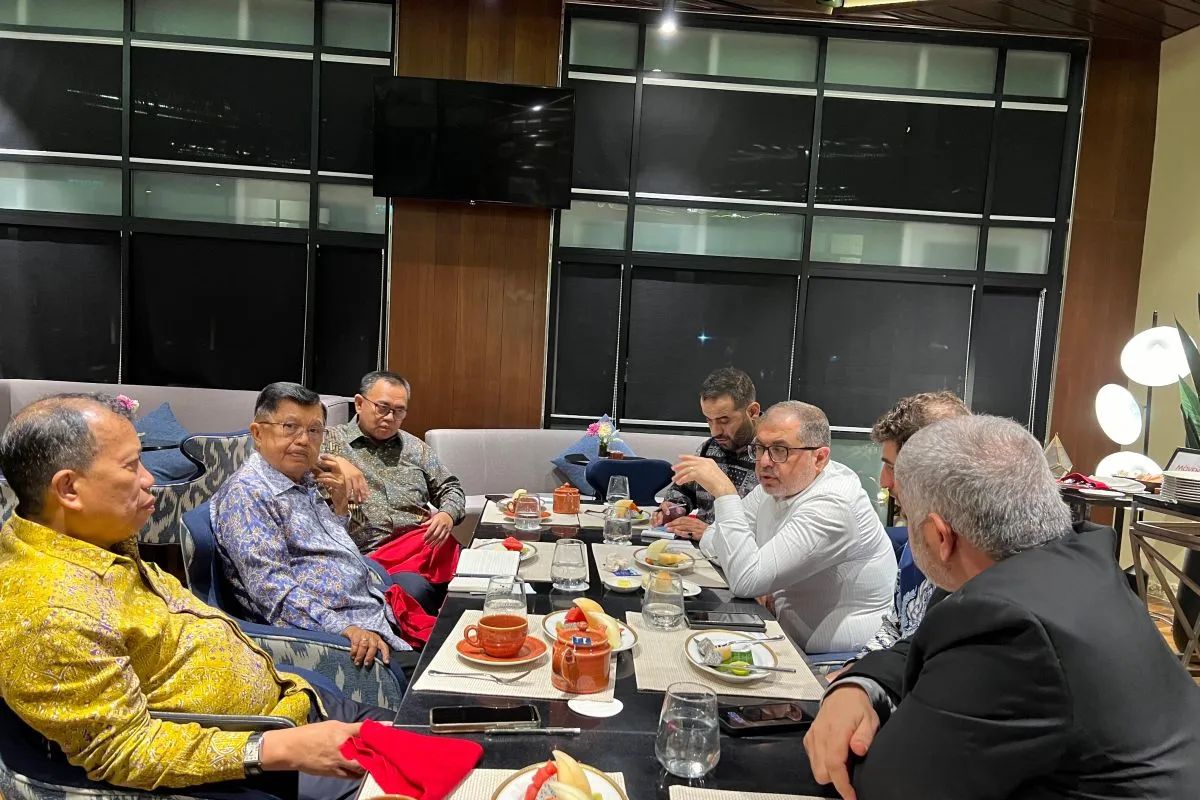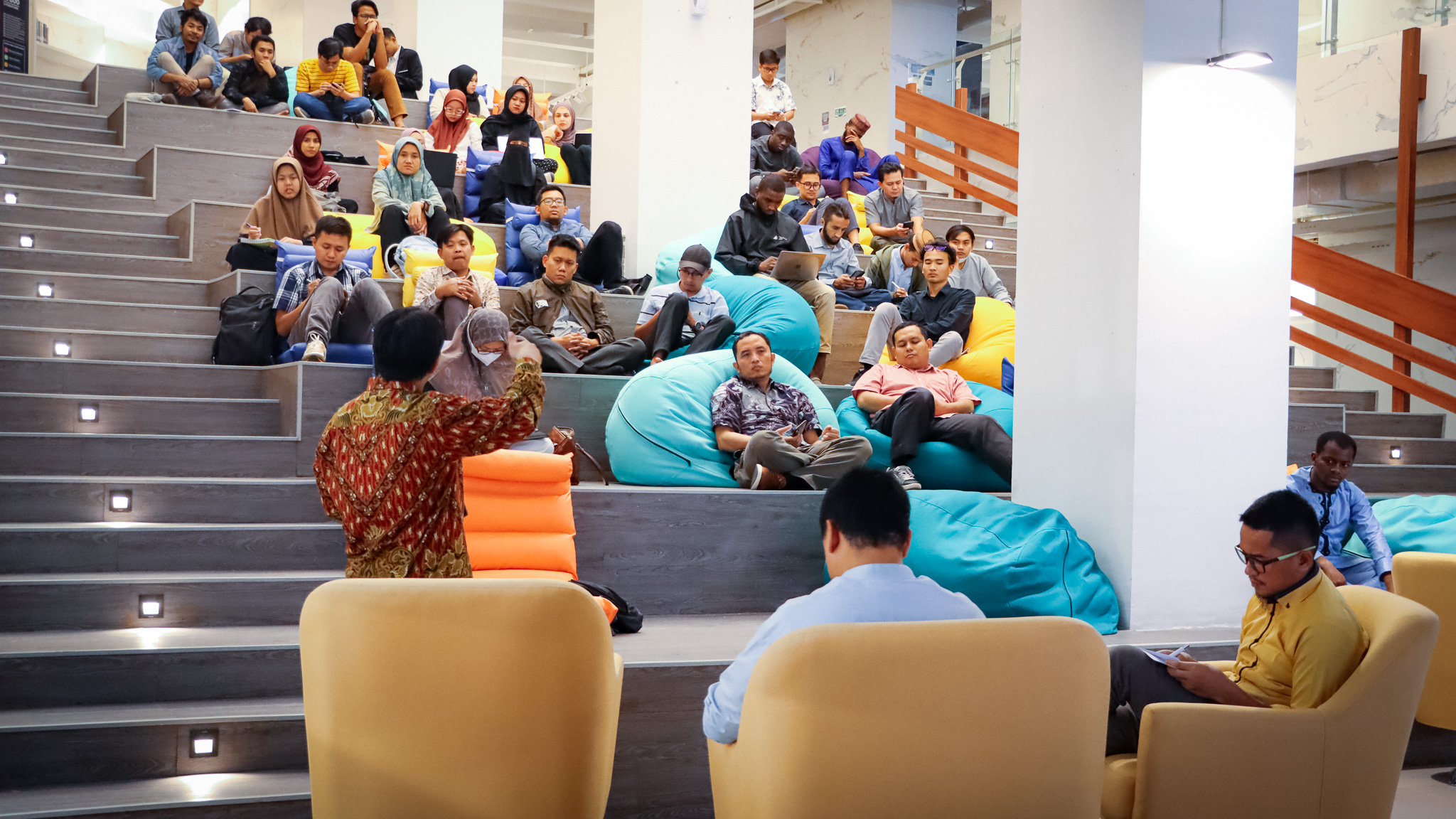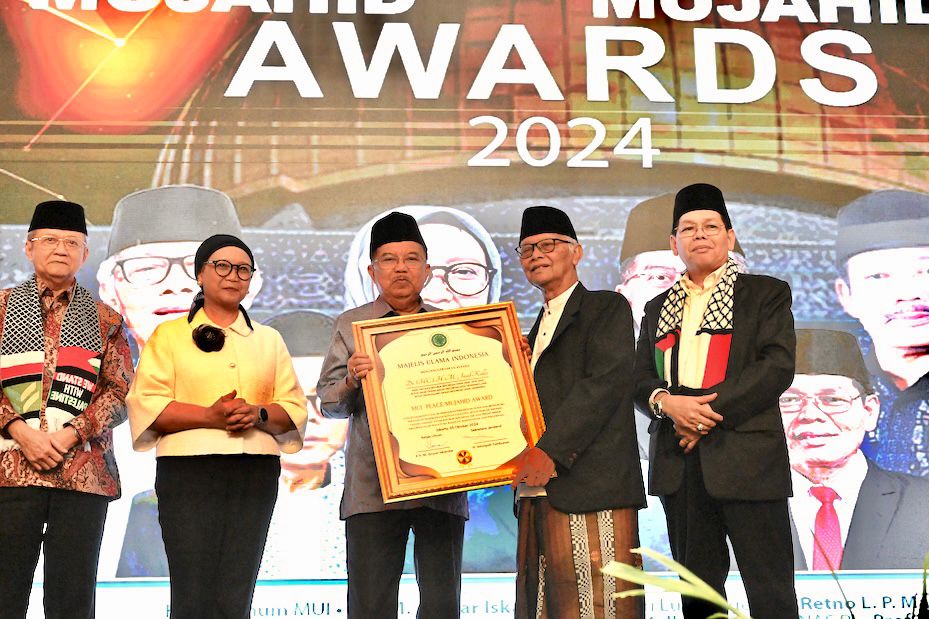Voices from Crimea: UIII's Commitment to Peace Dialogue on Ukraine’s Conflict
December 19, 2024Contributor: Supriyono | Editor: Dadi Darmadi | Photo: Achmad Jatnika
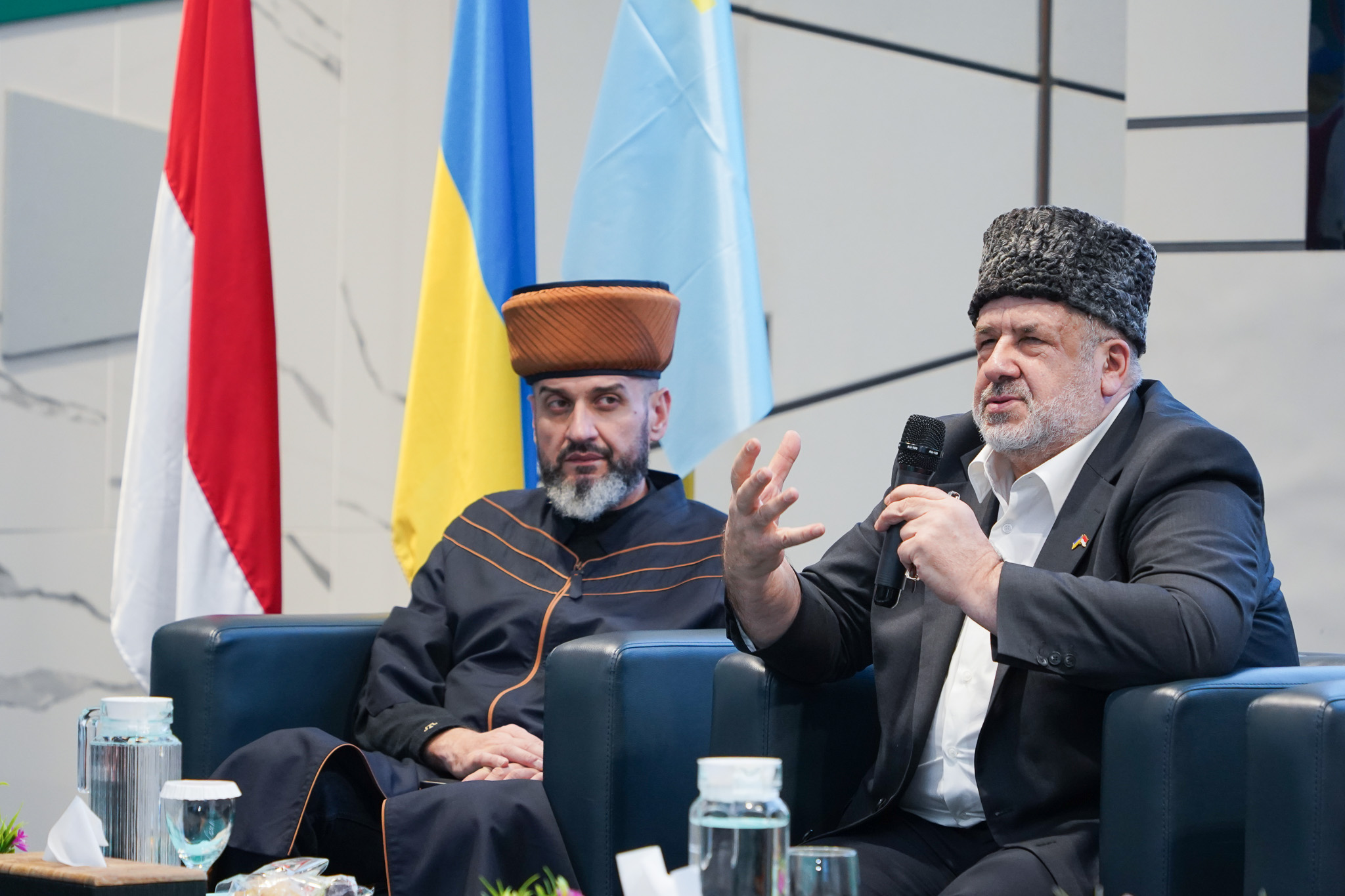
A day after holding a specialized dialogue on Palestine, UIII hosted another significant event addressing the plight of Ukraine’s Indigenous Crimean Tatar community, inviting two distinguished speakers HE Mr. Refat Chubarov, Chairman of the Mejlis of the Crimean Tatar People and President of the Worldwide Congress of Crimean Tatars, and Mr. Ayder Rustamov, Mufti of the Religious Administration of the Autonomous Republic of Crimea.
Crimea is a strategically significant peninsula in Eastern Europe, located on the northern coast of the Black Sea, geographically connected to mainland Ukraine by the narrow Isthmus of Perekop. It has been a focal point of geopolitical tension for centuries, shaped by the influence of various powers, including the Greeks, Romans, Ottomans, and Russians.
The event began with opening remarks by UIII Rector Prof. Jamhari, who reiterated the university’s commitment to advocating for oppressed societies through meaningful dialogue. “Our role as an academic institution goes beyond education. We stand as a platform to amplify the voices of those striving for peace and justice, and allow every opinion and perspective to be conveyed and heard through open dialogues,” he emphasized.
H.E. Vasyl Ivanovich Hamianin, the Ambassador of Ukraine to Indonesia, followed with a heartfelt address, shedding light on the struggles faced by the Crimean Tatars, and the importance of conveying the realities to global communities. “Truth is sometimes ugly and unpleasant, while lies are always beautiful and appealing. That’s why it’s easy to get hooked by lies, disinformation, and propaganda. So, I urge you to think critically, look deeply into the roots of everything,” he said.
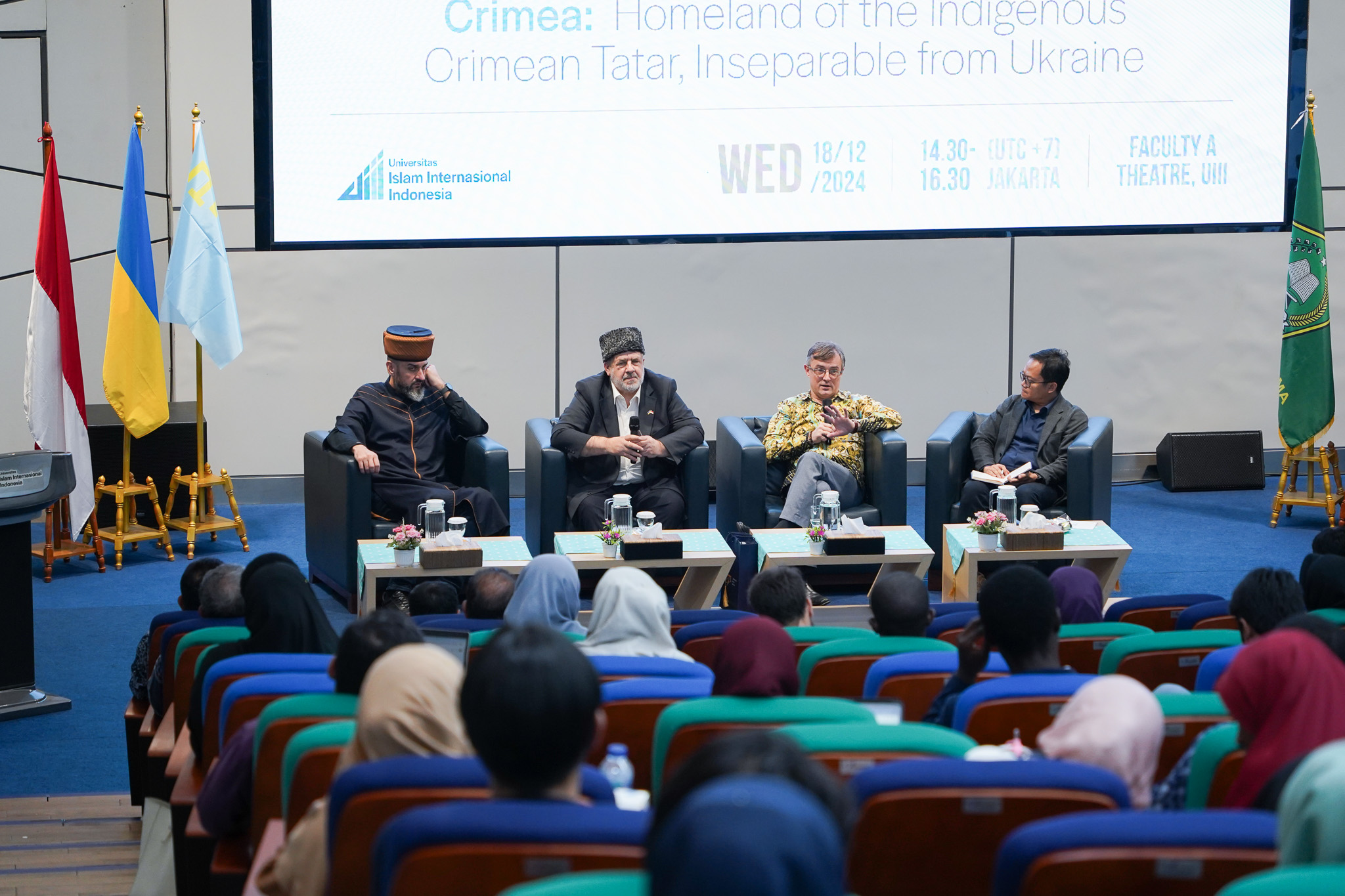
The event continued with the dialogue, moderated by Dr. Phil. Zacky Khairul Umam, a lecturer at UIII’s Faculty of Islamic Studies, exploring the intersection of culture, faith, and international justice in the context of Crimea’s struggle. The speakers brought deep insights to the table, with Mr. Chubarov focusing on the historical and political dimensions of Crimea’s occupation and the Crimean Tatar people’s enduring struggle.
"We have to understand who is evil and who is good and kind. Where there is darkness and where there is light, we must realize this, understand this, and take action—something tangible, something realistic—to bring an end to all the conflicts and wars. And I'm sure you can do this. You, the young people from around the world, can achieve this—if not today, then tomorrow," Mr. Chubarov said.
Adding a religious perspective, Mr. Rustamov emphasized the resilience of the Crimean Tatar community, grounded in their faith and traditions. “Islam is now integrated as the second most important religion in Ukraine. So, we have many adopted laws that will support Islam, Muslim communities, [and] support the [Islamic] holidays,” he said, signifying that one of the ways to end the conflict could be through religious perspective.
The event like this highlights the UIII's commitment to fostering global dialogue to find ways to end war and conflicts. By offering a platform for diverse voices, UIII aims to promote peace and justice through religious perspectives, encouraging meaningful discussions to help resolve issues like those in Ukraine and Palestine.
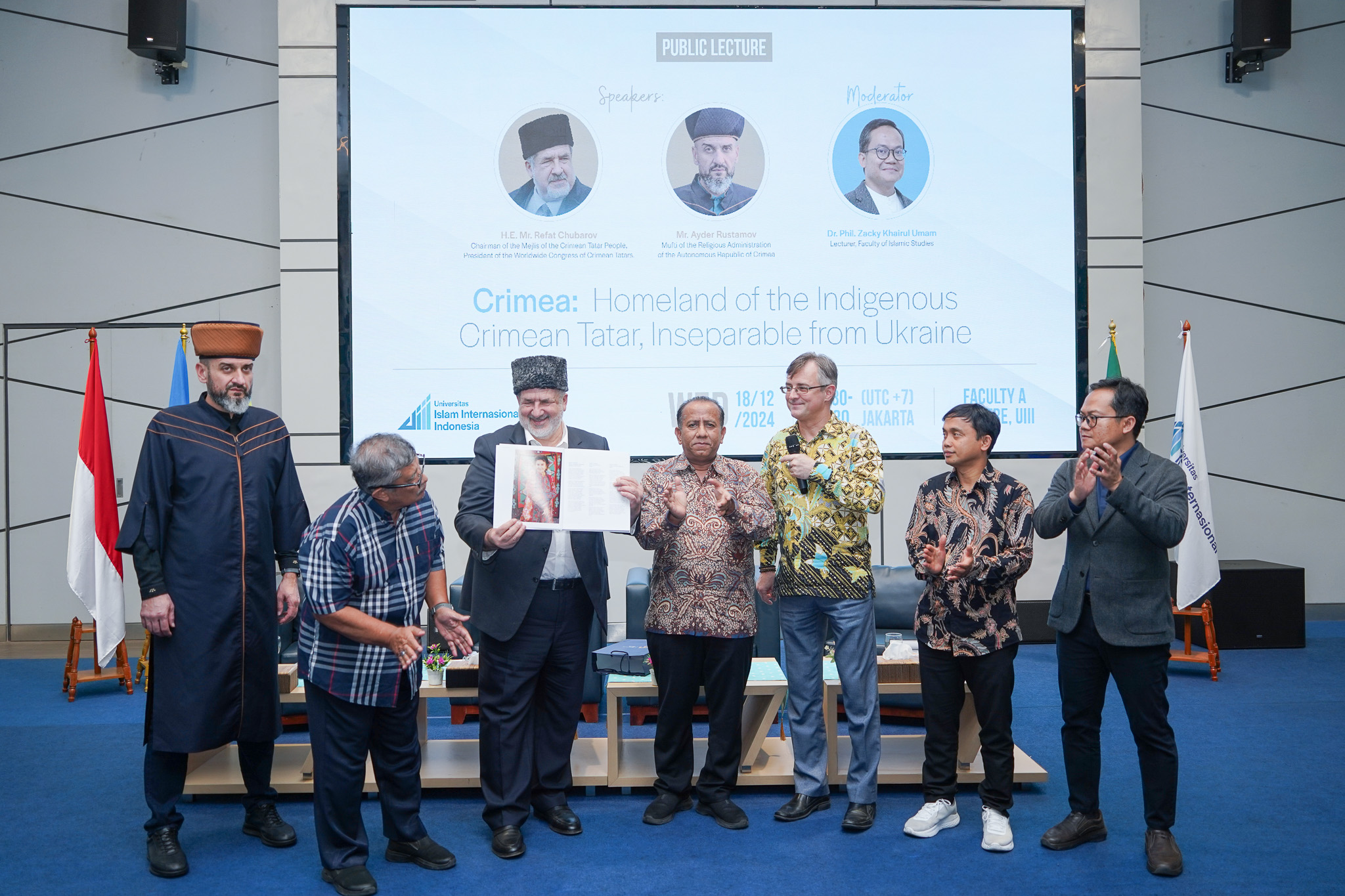
Read also:
- UIII Extends Application Deadline for 2025 International Admissions
- What Does Eid al-Fitr Mean for the UIII Academic Community?
- UIII PhD Scholar Ararat Kostanian Delivers Lecture at Armenia's Yerevan State University
- Swedish Ambassador to Indonesia Applauds UIII’s Vision, Explores Future Collaboration
- Depok Mayor Supports UIII as the Green Lung of Depok and Beyond
- Depok Mayor Pledges to Build Performance Hall at UIII
- New Parking Facility Launched, Part of UIII-Sentra Medika Hospital Partnership
- Yogyakarta’s UII Won 1st FisFastFest’s Clash of Campuses
- Vice Minister of Religious Affairs Praises UIII as a Global Hub for Islamic Education
- Hurray!! UIII Wins Football Championship
